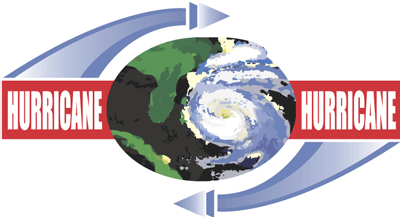BALTIMORE — The emergency management agencies in the Baltimore region are working together through the Baltimore Urban Area Security Initiative (UASI) to promote awareness and encourage residents to prepare for the Atlantic Hurricane Season, which officially began on June 1, and ends on November 30, 2017.
The height of Hurricane Season in the Baltimore region typically is mid-August to October. Hurricanes, tropical storms and tropical depressions pose the greatest threat to life and property. They can cause strong winds, heavy rain, inland flooding and other severe weather that can lead to death, injury and damage to homes and businesses alike. A large number of fatalities and injuries connected to powerful storms can occur in the event’s aftermath. Many of these take place during the cleanup process and are often preventable.
Residents in the Baltimore region can “be weather ready” by ensuring that they know how to receive a warning, have a plan, and practice safety tips.
The National Weather Service (NWS) and jurisdictions in the Baltimore region work closely together to identify and monitor hurricane activity, develop preparedness plans and safety information and coordinate the response to these storms. Residents also can take the following actions to remain safe:
•Build an emergency supply kit that includes, at minimum, a portable, battery-powered radio, flashlight and one gallon of water per person, per day to help get them through those first critical hours when basic services are down. The first 72 hours into an emergency are critical. It can take emergency personnel that long to restore basic services— electricity, heat, water, clearing of streets from debris, etc.
•Develop a family emergency and communications plan, as well as an evacuation plan.
•Stay tuned to trusted sources such as the NWS and local broadcasters for official weather information.
•Follow instructions and advice given by emergency officials, especially instructions related to evacuation.
•During severe weather, stay indoors away from windows, close all interior doors, and brace external doors. If you live near the shore or coast, expect the storm tide may inundate your home.
•Monitor NWS flood warnings for your area and be prepared to seek higher ground. Flooding is often our biggest threat.
•If you live in a mobile home, plan to leave if high winds are a threat as they are unsafe in high winds.
•Fill a bathtub or other large container with water for sanitary purposes such as cleaning and flushing toilets.
•Charge devices before bad weather hits and consider keeping a charger in your car.
•“Ready? Set? Good!” is a call-to-action emergency preparedness campaign through the Baltimore UASI that encourages people to prepare for an emergency before one happens.
For more information, including tips and a checklist of recommended items, visit: www.readysetgood.org.
